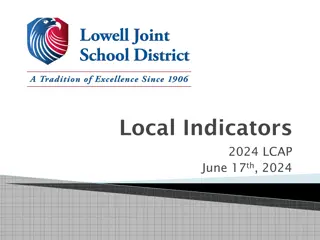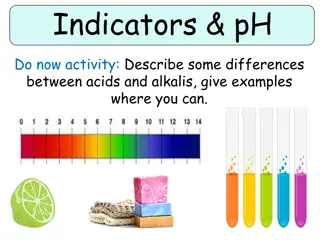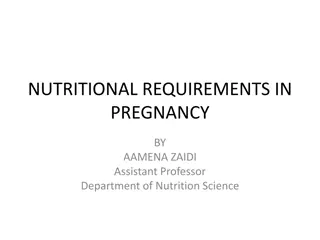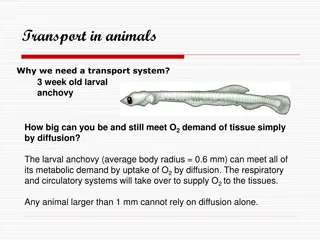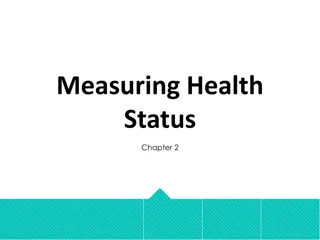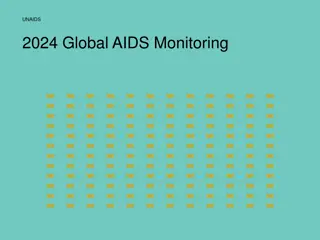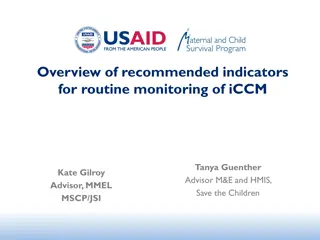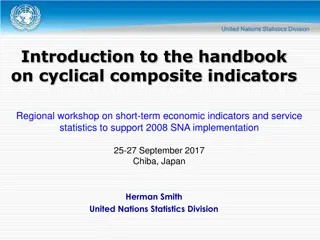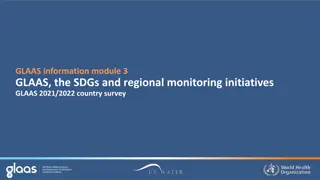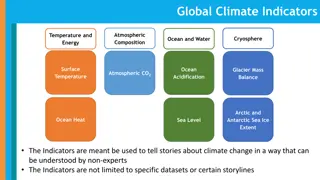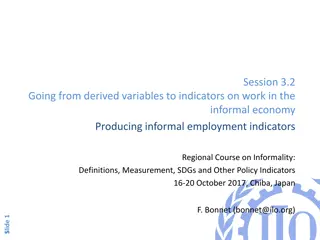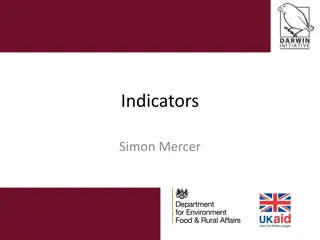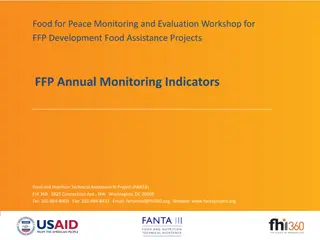Understanding Heterostyly and Physiological Disorders in Brinjal
Heterostyly in brinjal involves four types of flowers with varying styles impacting fruit setting, while physiological disorders like poor fruit set, calyx withering, and freezing injury can affect the crop's productivity. Controlling measures for each disorder are discussed to help manage these iss
0 views • 10 slides
Understanding Pulmonary Circulation and V/Q Ratio in Respiratory Physiology
Explore the high-pressure and low-pressure circulations supplying the lungs, the concept of physiological shunt in pulmonary circulation, different lung zones based on blood flow, V/Q ratio and its clinical significance, and abnormal V/Q ratio patterns. Delve into the role of pulmonary circulations
11 views • 28 slides
Understanding Physiological and Pathological Types of Occlusion
This lecture discusses the physiological types of occlusion, focusing on facial and jaw signs to determine correct harmonious occlusion. It explains characteristics of orthognathic bite, straight bite, physiological biprognathism, and opisthognathic bite, highlighting key features such as tooth alig
1 views • 34 slides
Understanding Impact Indicators in Monitoring and Evaluation
Impact indicators play a crucial role in monitoring and evaluating activities, projects, or programs. Direct indicators directly measure results, while indirect indicators are used when direct measures are not feasible. Quantitative indicators are expressed numerically, while qualitative indicators
3 views • 4 slides
Pharmacovigilance Indicators for Monitoring Health Interventions in India
The pharmacovigilance indicators outlined by the Indian Pharmacopoeia Commission focus on evaluating the status of pharmacovigilance systems in India. These indicators help measure the effectiveness of health services and interventions, identify strengths and weaknesses, and determine the impact and
2 views • 14 slides
Ensuring Local Indicators Compliance in California's Education System
The document outlines the required local indicators for LCFF priorities in California schools, emphasizing basics like teachers and facilities, academic standards implementation, and parent engagement. It also touches on school climate, course of study, and the criteria for LEAs/charters to be rated
2 views • 7 slides
Understanding Indicators and Standards in Environmental Management
Exploring the concept of indicators and standards in environmental management, this content delves into their definition, selection process, sources, and importance. Indicators are crucial variables used to track changes caused by human activities, aiding in assessing progress towards desired condit
1 views • 27 slides
Understanding Acids and Alkalis: pH Scale and Indicators
Explore the differences between acids and alkalis, learn about indicators, pH scale, and how to categorize solutions as acidic, alkaline, or neutral. Understand the importance of universal indicators in determining acid and alkali strength. Discover the disadvantages of using red and blue litmus pap
3 views • 11 slides
Understanding Urinary System Function in Veterinary Medicine
The urinary system in veterinary medicine involves the anatomy and physiological functions of maintaining body fluid composition and volume. Key processes like urine production, filtration, reabsorption, and regulation through nephrons play vital roles in maintaining overall health. This article cov
1 views • 14 slides
Understanding Nutritional Requirements in Pregnancy by Aamena Zaidi
Adequate nutrition before and during pregnancy is crucial for long-term maternal and fetal health. Maternal health is influenced by genetic, social, and economic factors, impacting physiological adaptations for better nutrient utilization. Physiological changes in pregnancy include increased total p
0 views • 41 slides
Understanding Trauma in Pregnancy and Intimate Partner Violence
Pregnancy introduces unique challenges in trauma care due to anatomical and physiological changes. Major physiological alterations impact injury patterns and responses, necessitating specialized management strategies. Blunt trauma incidents during pregnancy, including motor vehicle crashes and falls
1 views • 33 slides
Importance of Transport System in Animals for Oxygen Supply
Animals require a transport system to meet tissue oxygen demands efficiently. The size limit for oxygen diffusion alone is around 1 mm due to the proportional increase in radius and diffusion properties. Blood is crucial for transporting oxygen, nutrients, waste products, cells, and heat, as well as
0 views • 17 slides
Understanding Indicators in Strategic Planning and Information Management
Explore the importance of indicators in monitoring and evaluation, learn about different types of indicators such as baseline, output, and outcome. Discover the qualities of a good indicator and the various forms they can take, from direct to qualitative and standardized global indicators versus loc
2 views • 19 slides
Role of Major Physiological Anions in the Human Body
Physiological anions such as chlorides, sulphates, bicarbonate, phosphates, and electrolytes play essential roles in maintaining various functions within the body. Chloride ions help in osmotic balance, charge balance, and acid-base balance. Sulphates are important for detoxification mechanisms and
0 views • 11 slides
Understanding Leading and Lagging Indicators in Business
Leading and lagging indicators play crucial roles in assessing the performance of a business or organization. Leading indicators are predictive, influencing future outcomes, while lagging indicators record past events. A strategic combination of both types is essential for measuring performance effe
1 views • 4 slides
Understanding Health Status Indicators and Measurements
Health status indicators play a crucial role in assessing overall health status at individual, group, and population levels. These measurements, such as self-assessed health status and life expectancy, provide valuable insights for governments to identify trends, enact appropriate interventions, and
2 views • 18 slides
Updates and New Indicators in 2024 Global AIDS Monitoring Reports
Updates in the 2024 Global AIDS Monitoring reports include new indicators related to gender equality, human rights, and stigma elimination, changes to existing indicators, and terminology updates. Four new indicators focus on gender responsiveness of HIV services, discriminatory attitudes in health
0 views • 21 slides
Overview of Recommended Indicators for Routine Monitoring of iCCM
Process to review and refine iCCM indicators for routine monitoring initiated by the M&E sub-group of the global CCM Task Force. The group developed a list of 10 indicators in 6 domains, including Human Resources, Referrals, Service Delivery, Reporting, Supply Chain, and Clinical Coaching. These ind
0 views • 11 slides
Developing Proxy Indicators for Farm Profitability in Irish Agriculture
This study by Ciara O'Donovan focuses on developing and testing proxy indicators of farm profitability and efficiency measurements for knowledge transfer use on Irish farms. The research aims to identify indicators of farm performance, tailor them based on enterprise, scale, and seasonality, and tes
0 views • 20 slides
Handbook on Cyclical Composite Indicators Overview
This content provides insights into cyclical composite indicators, their objectives, features, and importance in economic analysis. It emphasizes the need for harmonized principles and standards in compiling these indicators for better international comparisons and economic assessments. The handbook
0 views • 23 slides
Early Warning Indicators for Pine Island Glacier in West Antarctica
The study examines the tipping points and early warning indicators for Pine Island Glacier in West Antarctica, a key contributor to sea-level rise. Through an advanced ice flow model, the research reveals three tipping points and their associations with ocean warming. The findings also introduce ear
0 views • 8 slides
Understanding Energy Indicators and Their Significance in Environmental Analysis
Exploring the importance of energy indicators in environmental analysis, this content delves into various types of indicators, such as econometric, physical, and efficiency indicators. It highlights the need for clear objectives in measurement and coherence between energy aspects and activities. Add
0 views • 18 slides
Comprehensive Overview of GLAAS, SDG Monitoring, and Goal 6 Indicators
The content delves into the Global Analysis and Assessment of Sanitation and Drinking-Water (GLAAS), its relationship with the Sustainable Development Goals (SDGs), particularly Goal 6 on clean water and sanitation. It discusses regional monitoring initiatives, the 2030 Agenda for Sustainable Develo
0 views • 16 slides
Challenges and Opportunities in Science and Technology Policy Indicators
Towards creating indicators for the field of science and technology policy, this content discusses the increasing demands in research management and evaluation, the potential role of indicators in decision-making, the drawbacks of conventional indicators, and the current issues with the usage of sci
0 views • 44 slides
Table Layout Guidelines for Data Presentation
Comprehensive guidelines for structuring tables including defining unique records, values of indicators and metrics, age composition, methods documentation, comments, and supporting information. The content outlines the table layouts for values of indicators, metrics, NOSA table indicators and metri
0 views • 26 slides
Enhancing Wellbeing: Indicators Aotearoa New Zealand
Indicators Aotearoa New Zealand aims to measure and improve the wellbeing of New Zealanders by tracking environmental, social, and economic progress. The indicators incorporate Māori perspectives and will monitor current and future generations' wellbeing impact. Stakeholders can provide input throu
0 views • 7 slides
Understanding Global Climate Change Indicators
Explore various indicators related to global climate change, including atmospheric composition, temperature, cryosphere, ocean conditions, and extreme weather events. The indicators cover a wide range of topics such as glacier mass balance, ocean acidification, heavy precipitation, droughts, and hea
0 views • 8 slides
Understanding Informal Employment Indicators and Their Use in Policy Making
This session focuses on producing indicators related to informal employment and the informal sector, derived from labor force surveys. It covers key indicators on the extent and composition of informal employment, including identifying priority actions for specific groups. The session also discusses
0 views • 36 slides
Developing Participatory Indicators for Program Evaluation
Sessions led by Dr. Angela Veale aim to establish baselines, identify indicators, and reflect on evaluation practices in psychosocial program evaluations. Understanding indicators at output, outcome, and impact levels is crucial for measuring project success. The process involves defining indicators
0 views • 33 slides
Understanding Health Indicators and Monitoring Vital Signs
Explore the importance of health indicators such as physiological and lifestyle indicators in monitoring health and wellbeing. Learn about measuring pulse, blood pressure, peak flow, and Body Mass Index (BMI) to assess different aspects of health. Discover abnormal readings, causes of high blood pre
0 views • 13 slides
Understanding Indicators in Monitoring and Evaluation
Indicators play a crucial role in monitoring and evaluation by providing signals of progress and success. They measure change, outcomes, and achievements of projects or programs. Different types of indicators exist, such as quantitative, performance, achievement, and accountability indicators. It is
0 views • 12 slides
Comprehensive Overview of FFP Annual Monitoring Indicators
Delve into the significance of annual monitoring, different categories and types of indicators, and the indicator revision process for the Food for Peace (FFP) program. Explore how to collect data, understand required indicators, and distinguish between output and outcome indicators.
0 views • 44 slides
Stakeholder Engagement in SPP/APR Meeting Results and Indicators
Stakeholder Meeting #2 discussed indicators 1, 2, 14, and 17 on July 27, 2021. The meeting highlighted new requirements for stakeholder involvement in the State Performance Plan/Annual Performance Report (SPP/APR) starting February 1, 2022. It emphasized expanding and documenting stakeholder engagem
0 views • 23 slides
Study on Physiological Functions Using Chronophotographic Gun
Étienne-Jules Marey's pioneering work in time-resolved photography for studying physiology inspires a proposal for a quantitative analysis of physiological functions using similar techniques. The project involves analyzing videos to study postures, locomotion, and other important physiological para
0 views • 7 slides
Comprehensive Training Package on Active Tuberculosis Drug Safety Monitoring and Management (aDSM) 2023
This comprehensive training package focuses on active tuberculosis drug safety monitoring and management (aDSM) in 2023. It covers indicators, learning objectives, and essential information for implementing effective drug safety measures in tuberculosis treatment. The presentation emphasizes definin
0 views • 11 slides
An Empirical Evaluation of Security Indicators in Mobile Web Browsers
Security indicators play a crucial role in determining the security of web pages on mobile browsers. This study evaluates the effectiveness of security indicators in identifying potential threats such as phishing and man-in-the-middle attacks. The research examines W3C guidelines, mobile browser com
0 views • 25 slides
Understanding Food for Peace Indicators and Evaluation Surveys
This content provides an overview of Food for Peace (FFP) indicators for baseline and final evaluation surveys, with insights on collecting and analyzing data related to key indicators such as household food access, nutrition status, WASH, agriculture, poverty, gender, and family planning. It discus
0 views • 14 slides
Practical Guidance on Localizing Indicators in Cocoa Supplier Training
This training session focuses on providing practical guidance for localizing indicators in the context of cocoa supply chains to address forced labor issues. Participants will learn how to adapt indicators to specific local contexts, develop relevant indicator lists, and create monitoring questions
0 views • 11 slides
Sustainable Development Indicators for Belgium: Progress Towards the SDGs
Belgium's progress on sustainable development indicators towards the Sustainable Development Goals (SDGs) is tracked through a set of global and national indicators. Key updates in the 2024 report include new indicators on child poverty and digital skills, along with revised definitions for capital
0 views • 16 slides
Enhancing Measuring Progress in GCM Indicators
The initiative focuses on canvassing Member States and stakeholders to gather insights for developing a limited set of indicators to measure the governance of migration, particularly in the context of the Global Compact for Safe, Orderly, and Regular Migration. The canvassing aims to identify critic
0 views • 13 slides





